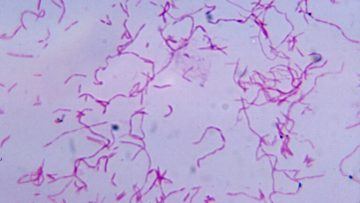Rebecca Robbins in STAT:
 The many companies developing liquid biopsies to try to detect cancer early have so far largely mined the blood in search of things like mutations and epigenetic changes in human DNA shed by tumor cells. Now, new research raises the possibility that liquid biopsies could be used to spot cancer in a totally different way: by hunting for the DNA of bacteria and viruses released from tumors into the bloodstream. It’s a hypothesis that, if validated with more study, could usher in an entirely new class of diagnostics for cancer. In a study published Wednesday in the journal Nature, a team led by researchers at the University of California, San Diego, reported that they have developed machine learning models that, in early-stage testing, could identify and distinguish between different types of cancer based on microbial signatures in the blood.
The many companies developing liquid biopsies to try to detect cancer early have so far largely mined the blood in search of things like mutations and epigenetic changes in human DNA shed by tumor cells. Now, new research raises the possibility that liquid biopsies could be used to spot cancer in a totally different way: by hunting for the DNA of bacteria and viruses released from tumors into the bloodstream. It’s a hypothesis that, if validated with more study, could usher in an entirely new class of diagnostics for cancer. In a study published Wednesday in the journal Nature, a team led by researchers at the University of California, San Diego, reported that they have developed machine learning models that, in early-stage testing, could identify and distinguish between different types of cancer based on microbial signatures in the blood.
The senior author of the study, the leading microbiome researcher Rob Knight, called the research “one of the most significant things to come out of our lab” since he moved to UCSD five years ago. “It’s introducing a completely new kind of information that you can get out of a liquid biopsy — where we would expect that new information would allow us to see things that are missed by techniques that just focus on the human DNA,” Knight said.
More here.
